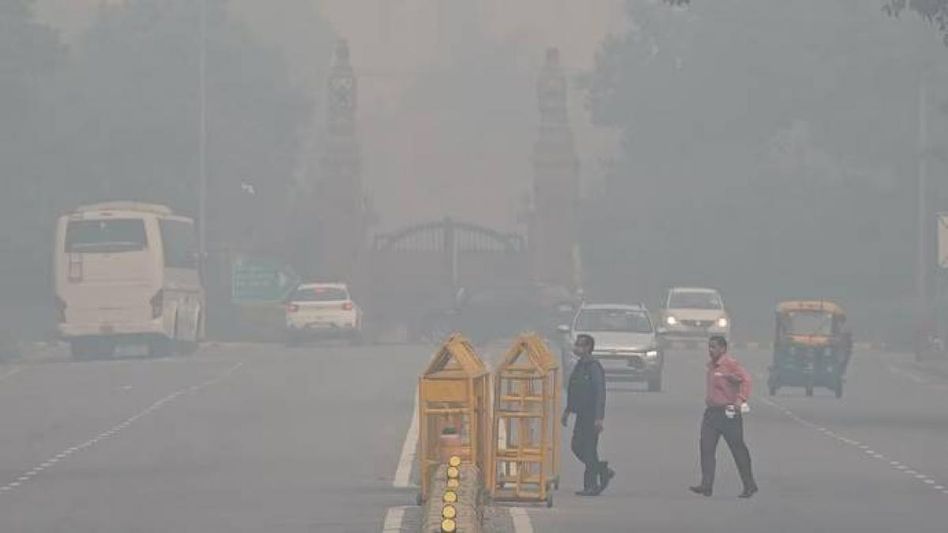Delhi's air quality continues to be severe for 3rd straight day
Delhi's air quality remained in the 'severe' category for the third consecutive day on Sunday as smoke encompassed the national capital.
 Delhi's air quality remained in the 'severe' category for the third consecutive day on Sunday as smoke encompassed the national capital.
Delhi's air quality remained in the 'severe' category for the third consecutive day on Sunday as smoke encompassed the national capital. Delhi's air quality remained in the 'severe' category for the third consecutive day on Sunday as smoke encompassed the national capital. The overall air quality index (AQI) of the city was recorded at 460 at 7 am. According to data by the Central Pollution Control Board (CPCB), the air quality index (AQI) in most regions across the city was above 400, with some areas recording near 500 at 7 am.
The AQI in Aya Nagar was at 464, at 490 in Dwarka Sector 8, at 479 in Bawana, at 482 in the Indira Gandhi International (IGI) Airport, at 411 in ITO, at 465 in Jahangirpuri, at 430 in Lodhi Road, and at 478 in Siri Fort, among others, at 7 am.
Noida, which is part of the national capital region (NCR), also woke up to 'severe' air quality with almost all of its monitoring stations recording over 400 AQI as of 7 am, according to CPCB data.
Gurugram, also in NCR, also recorded 'severe' category air quality on Sunday. As per CPCB data, the AQI in most areas across the city remained in the 'severe' category at 7 am.
An AQI between zero and 50 is considered 'good', 51 and 100 'satisfactory', 101 and 200 'moderate', 201 and 300 'poor', 301 and 400 'very poor', and 401 and 500 'severe'. Anything beyond 500 falls under the 'hazardous' category.
Delhi's average AQI on Saturday settled at 415 in the 'severe' category. Noida and Gurugram also settled in the same category with an average AQI of 408 and 404, respectively.
The national capital witnessed a marginal dip in pollution beginning Friday night till Saturday afternoon. However, PM 10 and PM 2.5 pollutants began rising again on Saturday evening. The spike in the concentration of both particulate matters continues to happen.
The main contributor of the deteriorating air quality in Delhi and its neighbouring cities remain stubble burning from Punjab.
In view of the hazardous air in the national capital, the Centre has already implemented Stage III of the Graded Response Action Plan (GRAP), under which several restrictions are in place in order to curb pollution. This includes a ban on non-essential construction work, mining and stone crushing, and also restrictions on plying of BS III petrol and BS IV diesel four-wheelers in Delhi, Ghaziabad, Gautam Budh Nagar, Gurugram, and Faridabad.
Delhi Chief Minister announced on X on Thursday that all government and private primary schools will remain shut for the next two days. It is to be seen if the order will become inactive on Monday (November 6), considering the national capital's air quality continues to worsen.
The New Delhi Municipal Council (NDMC) has taken several measures to combat the increasing air pollution in the city, including Mechanical Road Sweepers (MRS) in two shifts with GPS tracking for wet sweeping, using anti-smog gun or mist sprayer, and deploying 18,000 water tankers or trolleys to sprinkle water on trees and shrubs along the main roads.
Copyright©2025 Living Media India Limited. For reprint rights: Syndications Today









